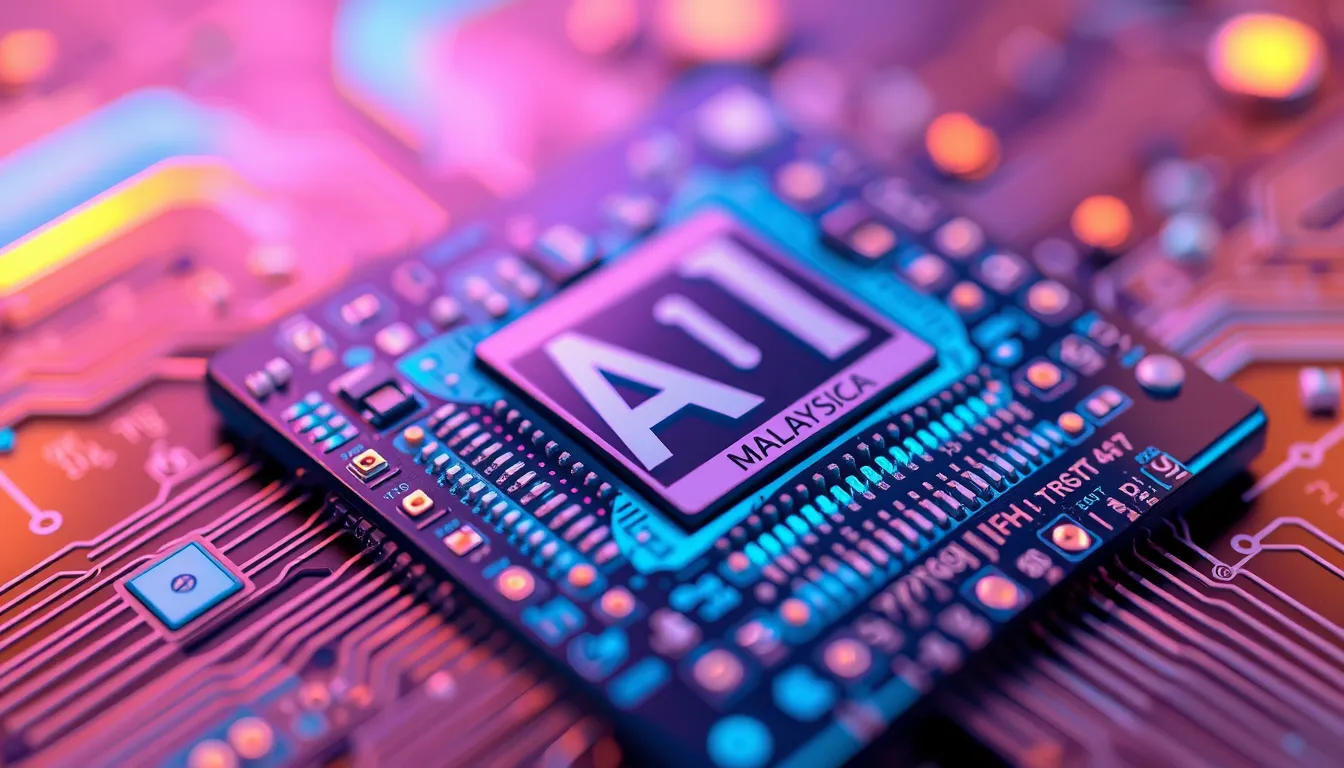Now Reading: Innovative SkyeChip MARS1000: Revolutionizing Edge Computing
-
01
Innovative SkyeChip MARS1000: Revolutionizing Edge Computing
Innovative SkyeChip MARS1000: Revolutionizing Edge Computing

Innovative SkyeChip MARS1000: Revolutionizing Edge Computing
Introduction to Malaysian Semiconductor Innovation
Malaysia continues to assert its presence in the global technology arena with breakthrough advancements in semiconductor innovation. At the center of this revolution is the SkyeChip MARS1000, an innovative edge-based AI chip that is poised to transform the way data is processed. Designed for local data processing, this chip facilitates real-time analytics, reduces latency, and enhances overall system performance in industrial automation, smart cities, and various other applications.
Overview of the SkyeChip MARS1000
The SkyeChip MARS1000 is not just a significant technical achievement—it symbolizes Malaysia’s commitment to pioneering cutting-edge technologies. As an innovative edge-based AI chip in Malaysia, it represents a convergence of advanced edge computing capabilities and robust semiconductor design. The chip’s primary function is to process data at the network’s edge, thereby minimizing the delays associated with centralized data centers. This localized approach is crucial for applications that demand swift, real-time decision making.
Technical Aspects and Core Functionality
Harnessing the Power of Edge Computing
One of the core features of the SkyeChip MARS1000 is its integration of edge computing. By processing data locally rather than transmitting it to a remote cloud, the chip ensures minimal latency and rapid response times. This is essential in high-speed environments such as industrial automation and smart city infrastructures. By reducing reliance on traditional cloud computing, the SkyeChip MARS1000 offers improved security and data integrity.
Advantages of Local Data Processing for Real-Time Analytics
Local data processing is a game-changer in today’s digital landscape. The advantages include:
- Reduced latency enabling near-instantaneous response times
- Enhanced security through localized processing which limits exposure to external threats
- Increased reliability as the system operates efficiently even with intermittent network connectivity
- Improved scalability with the potential to integrate seamlessly with emerging IoT devices
Furthermore, the chip’s ability to support real-time analytics makes it an invaluable asset for industries that depend on prompt and accurate data interpretations. For a more in-depth understanding of edge computing, you can visit the Wikipedia page on edge computing.
Applications in Industrial Automation and Smart Cities
The industrial sector stands to gain immensely from the advancements offered by the SkyeChip MARS1000. In industrial automation, where every second counts, the chip’s edge computing capabilities ensure that machinery and automated systems can process and react to data in real time. This kind of performance is critical for optimizing operations, reducing downtime, and enhancing safety measures on the production floor.
Smart cities are another domain where the edge-based design of the SkyeChip MARS1000 will shine. As urban areas grow and the demand for efficient, sustainable infrastructure increases, the need for localized processing architectures becomes paramount. By analyzing data on-site, smart city infrastructures can dynamically adjust traffic signals, manage utilities more efficiently, and respond quickly to emergencies.
Strategic Impact on Global Markets and Future Trends
Malaysia’s Emerging Role on the Global Stage
The launch of the SkyeChip MARS1000 is more than just a technological milestone—it is a testament to Malaysia’s increasing influence in the semiconductor industry. With the chip’s innovative design and robust performance benchmarks, Malaysia is carving out a space for itself as a key player in a market traditionally dominated by larger, more established players. This move not only boosts national pride but also paves the way for new international partnerships and collaborative ventures.
Pioneering the Future of Distributed Computing Infrastructures
Another critical aspect of the SkyeChip MARS1000 is its potential to redefine how distributed computing infrastructures are built and maintained. The trend toward localized processing architectures is gaining momentum globally as industries seek to minimize data latency and enhance system resilience. The chip’s success could lead to a paradigm shift in how information is processed in mission-critical applications across various sectors.
Conclusion
In conclusion, the SkyeChip MARS1000 represents a significant leap forward in both edge computing and semiconductor innovation. By delivering fast, efficient, and secure data processing at the network’s edge, this chip is set to revolutionize the way industries operate, from industrial automation to smart city solutions. It encapsulates the spirit of Malaysian innovation and underscores the nation’s potential to influence global technology trends. As more industries adopt local data processing solutions, the SkyeChip MARS1000 will undoubtedly serve as a benchmark for future innovations in the field of distributed computing.
The ongoing integration of advanced technologies like the SkyeChip MARS1000 into everyday applications is a powerful reminder of the dynamic nature of today’s digital economy. With continuous improvements in AI chip design and edge computing, we are witnessing the dawn of a new era—one where localized, efficient, and real-time data processing becomes the cornerstone of technological progress. The journey has only just begun, and the future is looking remarkably promising for Malaysia and the global tech community alike.

























